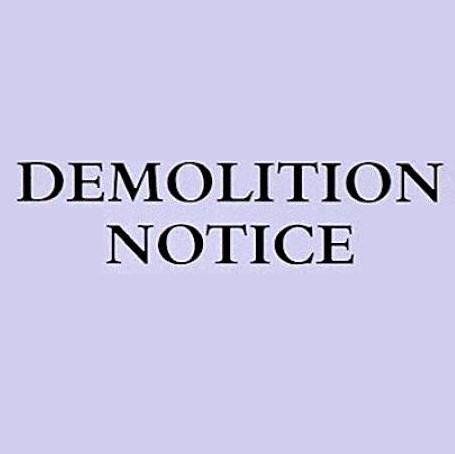Demolition Notice Application In London

Demolition notice application is given to the local councils in writing when someone has an intention to demolition a structure on his premises. This application applies to any kind of demolition like a part, or the entire building. The exceptions in this regard are quite limited. Therefore, if a person starts the demolition work without serving a 6 weeks notification then he or she can face prosecution since it a serious offence. So those of who have an intention of starting demolition work must notify your local authorities within the specified time and mention all details in it. People who do not have any knowledge about how the demolition notice application works can take guidance from this article.
Instructions
-
1
Demolition Notice Application to the Local Council:
The demolition notice application should contain the following details regarding the building, demolition work, and the person who has undertaken the work as well as the below listed points.
- The occupants of neighbouring buildings have been updated and implementation of the Party Wall Act has been attained.
- Gas supply of the premises has been ceased.
- Electricity for the premises has also been ceased.
- Water supply for the premises has been stopped as well.
- Drainage system from the site will be closed down.
- How the premises will be protected after completion of the work.
All the aforementioned information must be provided to the local council six weeks prior to starting the demolition work otherwise the owner can face a trial or fine up to £2000. -
2
Exceptions:
The exceptions in demolition notice are given only to the following buildings:
- Demolition work is taking place inside a building and the edifice remains occupied.
- Extension work taking place on a building that comprises of a conservatory, domestic greenhouse, pre-fabricated garage or shed.
- Building or structure has an external size of not more than 50m3. -
3
Other Parties needed to be Informed:
Other parties that should be informed by the owner or demolition contractor through the copy of the notification served to the local authority are:
- All owners of the neighbouring buildings
- Gas Authority
- Electricity Authority
- Water Authority
- Fire Department
- Health and Safety Executive -
4
Local Authorities Role:
After receiving the demolition notice application, Building Control Surveyors may come to the site for inspection. The surveyors will make sure that copies of notification have been distributed properly. While giving an approval for demolition, the local authority or council would expect the contractor or owner to follow the conditions specified below:
- Adequate repair, weather proofing and shoring of neighbouring buildings.
- Removal of rubbish or any other waste material.
- Disconnection of electricity, water and gas supplies.
- If burning of material/materials is required on site then it should be done in a controlled way.
If the above mentioned requirements are met then the local authority will approve the demolition work by serving a counter notice to the owner or contractor under Building Act 1984’s Section 81. -
5
Asbestos Material:
If asbestos material is found during the demolition work, the Health and Safety Executive (HSE) must be informed right away, for the safe taking away and disposal of such material. -
6
How to Send a Demolition Notice Application:
Demolition notice application is submitted to a local council either by visiting their office in person or by post. Most of the councils are offering online demolition notice application submission facility too, so one can send the application through that. -
7
Contact Your Local Council:
If you are not aware about the contact details of your local council then, click here to find your desired information.







